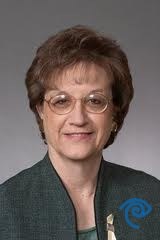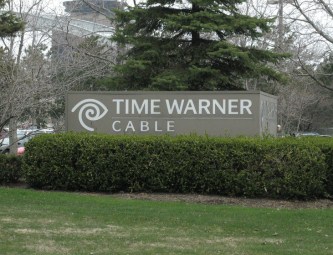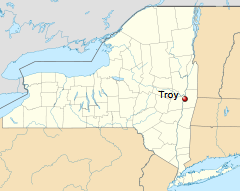
Rep. Marilyn Avila (R-Time Warner Cable)
After passing through the Republican-dominated Finance Committee, Rep. Marilyn Avila’s (R-Time Warner Cable) cable company-written, anti-consumer legislation arrived in the North Carolina Senate this afternoon, where it was promptly, if temporarily, derailed over whether residents have the right to watch adult entertainment on community-owned broadband/cable networks.
That’s right… porn has thrown the state legislature into such silliness, the entire bill had to be pulled from consideration until Monday.
Here’s a quick rundown how things played out today:
♥ — H.129, Avila’s anti-broadband bill, has proved to be the first serious piece of legislation that has divided the normally lock-step Republican-controlled legislature this session. That is entirely because YOU are putting the pressure on with your calls and e-mails to Senate members. We have it on good authority the overwhelming amount of response to this bill from constituents has been downright hostile to the idea it should ever pass. Consumers in North Carolina want more choices for broadband, not less. They want increased competition, lower prices, and most importantly — better service (or at least s0me service from someone). H.129 does none of those things. It doesn’t deliver a single new broadband connection anywhere in the state.
♥ — Several amendments helpful to broadband development managed to win a place in the bill. The communities of Wilson and Salisbury will get to expand their systems to cover larger areas, including the town of Faith Stop the Cap! covered earlier. We also won a victory changing the terms of the “mandatory referendum” provision to strip away the loaded, misleading ballot question about whether cities should ‘take on more public debt’ to finance the construction of community broadband, replacing it with a fairer alternative — do you favor your community building its own broadband system.
↓ — But we also lost a few battles. Yesterday, the industry covertly changed the definition of an unserved area from “an area where 50% don’t receive FCC basic broadband service” to a Census block, where 50% of the households don’t receive 768/200Kbps. That change annihilates the unserved area exemption. As confirmed by the highly credible e-NC authority, the industry provides its broadband data by Census block, not by household, and if a census block has just one home that receives Internet service, the entire census block is labelled as having Internet service.
Today, Senator Atwater (D-Chatham) tried to modify that definition with a much better measurement standard: “homes per square mile.” The federal government has established that the least dense areas of the country are the most costly to serve, which explains why these areas traditionally lack broadband service or receive low speed DSL. Atwater’s amendment targeted the 38% of the most rural areas in North Carolina to keep the door open for community broadband, but Senator Tom Apodaca (R-Hendersonville) would have none of it, despite the fact his district covers the rural expanse of the western mountains of North Carolina. Stop the Cap! readers have shared stories with us about hanging out in parking lots using motel Wi-Fi to pay their bills online or complete homework. In Apodaca’s world-view, that means those areas have broadband.
Now our readers will understand why we have stressed it is so important to have accurate, in-depth broadband map data. Instead, industry-connected groups like Connected Nation conjure up maps created by unverified, provider-supplied data. This map data is a critical part of H.129’s tragic terms and conditions. If the maps say service exists, industry lobbyists use that to browbeat elected officials into believing there is no broadband problem, and there is no reason to allow communities to build their own broadband services.
Of course, the reality is very different. We’ve received hundreds of messages from Americans who say these maps show broadband as being widely available in their communities, but in reality is not. Some legislators in North Carolina have confronted this reality personally. For those that haven’t, it’s easy to accept provider arguments, cash those campaign contribution checks, and throw constituents under the bus.
We Saved the Most Ridiculous Part of Today’s Events for Last

Sen. Apodaca's obsession with adult entertainment derailed a scheduled vote on H.129 this afternoon.
When the city of Fayetteville wanted protection for their investment in fiber optics, at risk from H.129, the aforementioned Sen. Apodaca lost his mind. Instead of protecting city funds already spent on next generation fiber, he substituted his own new amendment — to strip adult programming off community-owned broadband/cable systems instead.
You read that right. In case you didn’t, here it is again:
Sen. Apodaca would rather be the arbiter of what you can watch in the privacy of your own home than protecting community investments in broadband improvements.
So much for the “level playing field” title of Avila’s original bill. Apodaca’s anti-porn crusade does not apply to Time Warner Cable or other private providers, so he has no problem at all if you want to pop some popcorn and settle down to some movies like “Suck It Sunrise,” “Boning Black Beauty 8” (to answer those lingering questions that went unanswered in part 7), or “Dripping Wet Lesbians,” all currently running on TWC’s adult channels.
No matter that Apodaca’s amendment is completely against federal law, which should signal how clueless some legislators are about these issues. The Cable Act provides settled law on this subject. Government cannot engage in cable content regulation — particularly the state and federal government. The cable industry lobbied hard for that protection in the 1980s in part because of controversy over MTV and other “explicit” programming. Only the local franchising authority can make decisions about the content they carry — and that means local communities get to make those decisions for themselves (47 USC 544(d)(1)). That means Sen. Apodaca should worry about his own television viewing habits and stay out other peoples’ lives.
We’re helpers here at Stop the Cap!, so we’d point the senator to 47 USC 544(f)(1):
(f) Limitation on regulatory powers of Federal agencies, States, or franchising authorities
(1) Any Federal agency, State, or franchising authority may not impose requirements regarding the provision or content of cable services, except as expressly provided in this subchapter.
Those exceptions, by the way, have to do with changes in federal law, not the individual whims of one state senator.
Sen. Mansfield, who introduced the original amendment to protect Fayetteville, was naturally disturbed to find Apodaca’s non-germane substitute. That promoted Apodaca to suggest Mansfield allowed his children to watch pornography, and from there the debate spiraled out of control. After a brief recess, Apodaca returned to apologize to Mansfield, before killing the amendment to protect Fayetteville’s fiber investment for a second time.
Reviewing today’s events provides us with another edition of Legislators Out of Their League. Apodaca’s naive amendment was not the only telling example (we know more about telecommunications law than he does.) Yesterday in the Senate Finance Committee, Ms. Avila was utterly lost at sea as discussion ensued on amendments to the bill with her name on it. Reduced to muttering at times, confused about the discussions dealing with the definition of underserved, her usual reaction was to oppose what she didn’t understand. None of this is surprising considering the cable industry wrote the majority of her bill she introduced as her own. She continues to protect their interests while ignoring yours.
This is why we continue to oppose H.129 and you should too. We have until Monday to continue to drive the message home to state senators. If you called or wrote before, it’s time to write and call again. Tell your state senator H.129 is a bill written by and for the cable and phone companies. It does not deliver any new broadband service to anyone, risks the investments communities across the state have already made, and allows a handful of big telecom companies to control North Carolina’s broadband destiny. Considering the state achieves dead last ratings in broadband, that is the kind of control they should never be allowed to have.
Senate Representation By County
2011-2012 Session
(click on your member’s name for contact information)


 Subscribe
Subscribe








